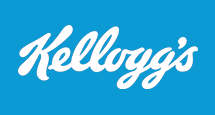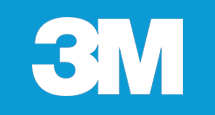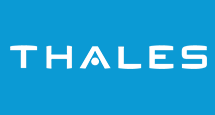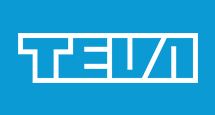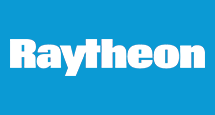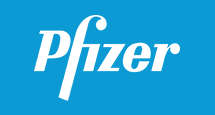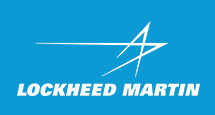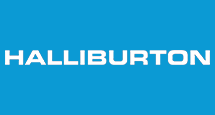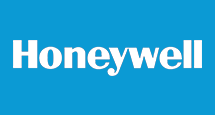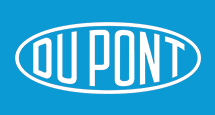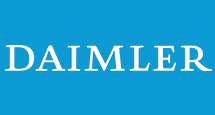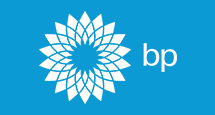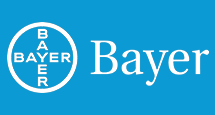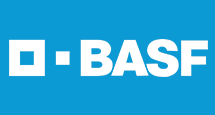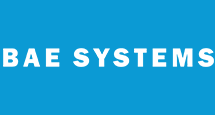Visiongain Publishes Antibody Drug Conjugates Market Report 2022-2032
28 November 2022
Visiongain has published a new report entitled Antibody Drug Conjugates Market Report 2022-2032: Forecasts by Payload Type (MMAE, DM4, Camptothecin, DM1, MMAF, Other), by Technology (Cleavable Linkers, Non-Cleavable Linkers, Other), by Linker Type (VC, Sulfo-SPDB, SMCC, Other, VA, Hydrazone), by Target Antigen (CD30, HER2, CD22, CD33, Other), by Application (Blood Cancer, Breast Cancer, Ovarian Cancer, Lung Cancer, Brain Tumor, Other) AND Regional and Leading National Market Analysis PLUS Analysis of Leading Companies AND COVID-19 Impact and Recovery Pattern Analysis.
The global antibody drug conjugates market was valued at US$3,668 million in 2021 and is projected to grow at a CAGR of 15.1% during the forecast period 2022-2032.
Four of the Largest Biopharmaceutical Companies, have Announced Investments in ADC Research and Development (R&D)
Novartis, Lilly, Roche, and AstraZeneca, four of the largest biopharmaceutical companies, have all declared investments in ADC research and development (R&D). In order to create therapies for particular targets, Novartis and Lilly engaged in licensing agreements with ImmunoGen. Owing to this, businesses can now exploit ImmunoGen's ADC technology. Over the next five years, Roche expects to invest 800 million Swiss francs (US$ 845 million) in expanding its global manufacturing network to increase production capacity for its biologic medicines. Additionally, the Basel plant will receive approximately 190 million Swiss francs (US$200.6 million) in investment to build an ADC production plant, which will result in the creation of 50 jobs. This investment will enhance capacity and flexibility to support Roche's Kadcyla product and an additional eight ADCs that are now undergoing clinical trials. Roche and Molecular Partners AG have joined forces to find, create, and market DARPin®-drug conjugates for the treatment of cancer. The Roche-developed toxic chemicals will be coupled to the tiny, non-antibody-based targeted proteins known as DARPins.
How has COVID-19 had a significant negative impact on the Antibody Drug Conjugates Market?
COVID-19 presents an opportunity for the antibody-drug conjugates market player to play an expanded role in care. The growing number of coronavirus cases across the globe and the rising relationship between technology and healthcare is projected to open new revenue avenues for the market players over the forecast period.
The general COVID-19 pandemic reduced demand for several sectors; nevertheless, numerous other fields remained unaffected and showed encouraging signs of future growth. COVID-19 has a variety of effects on many industries. The outbreak of the COVID-19 pandemic had a negative impact on the antibody-drug conjugates market since operations within hospitals and healthcare institutions were severely curtailed owing to social distancing and lockdown measures adopted by governments throughout the world.
How will this Report Benefit you?
Visiongain’s 434-page report provides 184 tables and 242 charts/graphs. Our new study is suitable for anyone requiring commercial, in-depth analyses of the global antibody drug conjugates market, along with detailed segment analysis in the market. Our new study will help you evaluate the overall global and regional market for Antibody Drug Conjugates. Get the financial analysis of the overall market and different segments including payload type, linker type, application, target antigen, and company size, and capture a higher market share. We believe that there are strong opportunities in this fast-growing antibody drug conjugates market. See how to use the existing and upcoming opportunities in this market to gain revenue benefits in the near future. Moreover, the report will help you to improve your strategic decision-making, allowing you to frame growth strategies, reinforce the analysis of other market players, and maximize the productivity of the company.
What are the Current Market Drivers?
Target-Specific Nature of Monoclonal Antibodies for Disease Treatment
The major reason for monoclonal antibodies' recent commercial success is their highly specific nature toward their targets and the availability of a large range of disease targets. The majority of the revenues have come from indications for rheumatoid arthritis and oncology. Additionally, monoclonal antibodies have been marketed for use in the treatment of cardiovascular, antiviral, and ophthalmological conditions. Broad applicability and excellent specificity are primary market drivers for monoclonal antibodies. As more and more possible targets are discovered, these medicines will be able to penetrate new segments of the pharmaceutical market, making entry into the monoclonal antibody business even more alluring.
Clinical Cancer Therapy Is Being Gradually Revolutionized by the use of Antibody-Drug Conjugates (ADCs)
The fate of ADCs is significantly influenced by the antibody-drug conjugate linker molecule, which controls both efficacy and side effects. The cytotoxic payload of the ideal linker should only be released in the tumor and needs to be stable in the bloodstream. The existing linkers, on the other hand, frequently release payloads inadvertently, which results in off-target toxicity. This flaw is playing a crucial role in limiting the advancement of ADCs. The search for ADCs with the best therapeutic windows has led to impressive advancements in the development of new linkers. The development of the chemical trigger, linker-payload attachment, and linker-antibody attachment in the past few years has triggered market growth.
Where are the Market Opportunities?
Treatment for Autoimmune Diseases is Inadequate
The second most important class of antibody medications is monoclonal antibodies, which accounted for 39% of all antibody sales and are used to treat autoimmune diseases. Rheumatoid arthritis affects around 50 million people globally, yet only a small minority of these individuals receive treatment with antibody-based medications. Advancing age is not the main risk factor for autoimmune disorders, as compared to cancer. However, the rise of autoimmune diseases is causing significant economic expenses on society as well as the burden of disability. Treatments using monoclonal antibodies for autoimmune disorders have a low uptake among patients. The main opportunity for market players would be to will raise the penetration of these medications.
The rise in Cancer Incidence Will Drive Demand for Antibody Drug Conjugates
Approximately 15% of all deaths are due to cancer, which is a primary cause of death globally. Each year, 1.6 million people in China die from cancer, accounting for 25% of all fatalities. An estimated 15 million new cases are identified annually. China has a 50 percent 5-year survival rate compared to a 70 percent U.S., rate. Healthcare professionals place a high premium on treating cancer. Each year, lung cancer claims the most lives of all types of cancer, followed by stomach, colorectal, liver, and breast cancers. Cancer is more common as people age. According to reports, the continued industrial growth and the aging of the population would mostly be responsible for the estimated 50% increase in cancer incidence and mortality by 2024.
Competitive Landscape
The major players operating in the antibody drug conjugates market are AbbVie Inc. Company, Astellas Pharma Inc., Bayer AG, Celldex Therapeutics, Inc., F. Hoffmann-La Roche Ltd., Genentech, Inc., Gilead Sciences, Inc., ImmunoGen, Inc., Lantheus Holdings, Inc., Lonza Group AG, Merck KGaA, Mersana Therapeutics Inc., Pfizer Inc., Seagen Inc., Takeda Pharmaceutical Company Limited. These major players operating in this market have adopted various strategies comprising M&A, investment in R&D, collaborations, partnerships, regional business expansion, and new product launches.
Recent Developments
• 16 May 2022, AbbVie and Cugene Inc. signed an exclusive worldwide licence option agreement for CUG252, a potential best-in-class Treg-selective IL-2 mutein, as well as other novel IL-2 muteins, for the potential treatment of autoimmune and inflammatory diseases.
• 26 May 2022, Glofitamab, a CD20xCD3 T-cell engaging bispecific antibody under investigation, recently received important new data which moves the company closer to its goal of finding treatments for people with heavily pre-treated diffuse large B-cell lymphoma, which frequently relapses and gets more aggressive each time it does.
Notes for Editors
If you are interested in a more detailed overview of this report, please send an e-mail to contactus@visiongain.com or call +44 (0) 207 336 6100.
About Visiongain
Visiongain is one of the fastest-growing and most innovative independent media companies in Europe. Based in London, UK, Visiongain produces a host of business-to-business reports focusing on the automotive, aviation, chemicals, cyber, defence, energy, food & drink, materials, packaging, pharmaceutical and utilities sectors.
Visiongain publishes reports produced by analysts who are qualified experts in their field. Visiongain has firmly established itself as the first port of call for the business professional who needs independent, high-quality, original material to rely and depend on.
Recent News
Visiongain Publishes Drug Delivery Technologies Market Report 2024-2034
The global Drug Delivery Technologies market is estimated at US$1,729.6 billion in 2024 and is projected to grow at a CAGR of 5.5% during the forecast period 2024-2034.
23 April 2024
Read
Visiongain Publishes Cell Therapy Technologies Market Report 2024-2034
The cell therapy technologies market is estimated at US$7,041.3 million in 2024 and is projected to grow at a CAGR of 10.7% during the forecast period 2024-2034.
18 April 2024
Read
Visiongain Publishes Automation in Biopharma Industry Market Report 2024-2034
The global Automation in Biopharma Industry market is estimated at US$1,954.3 million in 2024 and is projected to grow at a CAGR of 7% during the forecast period 2024-2034.
17 April 2024
Read
Visiongain Publishes Anti-obesity Drugs Market Report 2024-2034
The global Anti-obesity Drugs market is estimated at US$11,540.2 million in 2024 and is expected to register a CAGR of 21.2% from 2024 to 2034.
